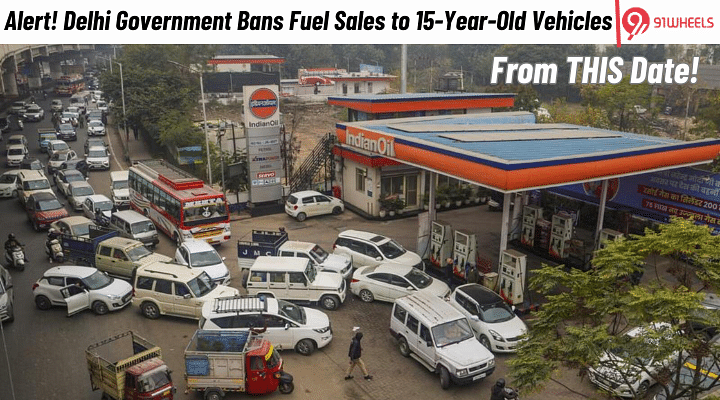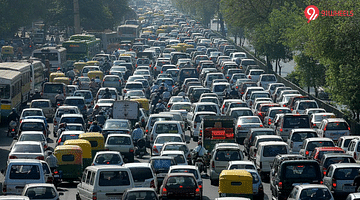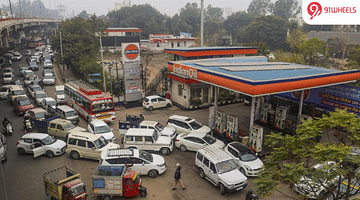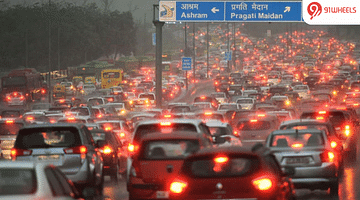
KEY HIGHLIGHTS
- Delhi bans refueling for 15-year-old vehicles from April 2025.
- Special devices at petrol pumps to enforce fuel ban.
- Task force to monitor polluting vehicles entering Delhi.
- Smog guns mandated for hotels and high-rise buildings.
- Delhi replacing CNG buses with electric vehicles by 2025.
Old vehicle Ban Delhi: In a decisive move to tackle Delhi's severe air pollution crisis, the city government has announced a strict ban on refueling vehicles older than 15 years at petrol pumps starting April 1, 2025. The directive, aimed at curbing vehicular emissions, was confirmed by Delhi's Forest and Environment Minister Manjinder Singh Sirsa during a press briefing on Saturday. To enforce this regulation, specialized detection gadgets are installed at fuel stations across the capital.
Sirsa says nearly 80 percent of petrol pumps have already been equipped with these devices. The complete implementation of this device across the NCT is expected by March 31. The system will automatically prevent vehicles beyond the age limit from purchasing fuel. The specialized device will play a major role in ensuring compliance with the new rule. Before moving ahead, join our 91Wheels WhatsApp Community to stay updated on the latest automotive news and industry insights.
Read more: Vinfast VF7 Top Highlights Explained: All You Should Know
Special Task Force to Monitor Implementation

Alongside the fuel restriction, the government has also constituted a special task force to identify and restrict the movement of aging, polluting vehicles. The focus will be on older diesel vehicles entering Delhi from neighbouring states, as these are considered a major contributor to the city's toxic air.
"Strict implementation of these measures will begin from April 1," said Sirsa. He added "Our priority is to reduce vehicular emissions and make Delhi's air safer for everyone."
Steps to Reduce Air Pollution

The crackdown on outdated vehicles is part of a larger strategy by the BJP-led Delhi government to mitigate air pollution, particularly ahead of the smog-heavy months in autumn and winter. The administration has also introduced new mandates for high-rise buildings, commercial complexes, and hotels, requiring them to install anti-smog guns to improve air quality in their surroundings.
"We are making it mandatory for large hotels, office complexes, Delhi airport, and major construction sites to have smog guns installed," Sirsa stated, emphasizing that this requirement will soon be extended to all high-rise structures in the city.
Additionally, to promote cleaner transportation, the government has set a target to phase out nearly 90 percent of Delhi's CNG-powered public buses by December 2025. These buses will be replaced with electric vehicles, and with this, the government expects a significantly reduced vehicular emissions in the city.
A Battle Against Air Pollution

The fight against Delhi's deteriorating air quality has been a longstanding issue. While previous governments struggled to enforce strict anti-pollution measures, the current administration is doubling down on proactive solutions. Despite these efforts, some people argue that addressing pollution requires a multi-state collaboration, particularly to tackle issues like stubble burning in Punjab and dust pollution from poorly maintained roads, factors that significantly contribute to Delhi's air quality problems.
Read more: Nissan Magnite CNG Likely to Launch Soon Amid Rising Demand
Verdict
With the fuel ban on older vehicles set to take effect soon, vehicle owners in Delhi will need to comply or consider alternative transport solutions. Authorities have warned that violators will face strict action, including the impoundment of non-compliant vehicles.
As Delhi moves toward cleaner and more sustainable transport policies, all eyes will be on how effectively these measures are implemented and whether they bring the much-needed relief to the city's air pollution crisis.





















